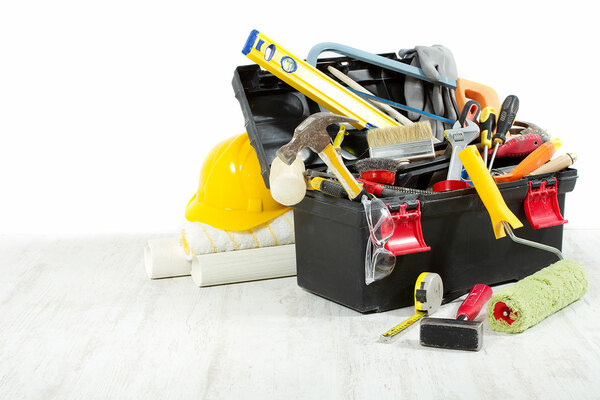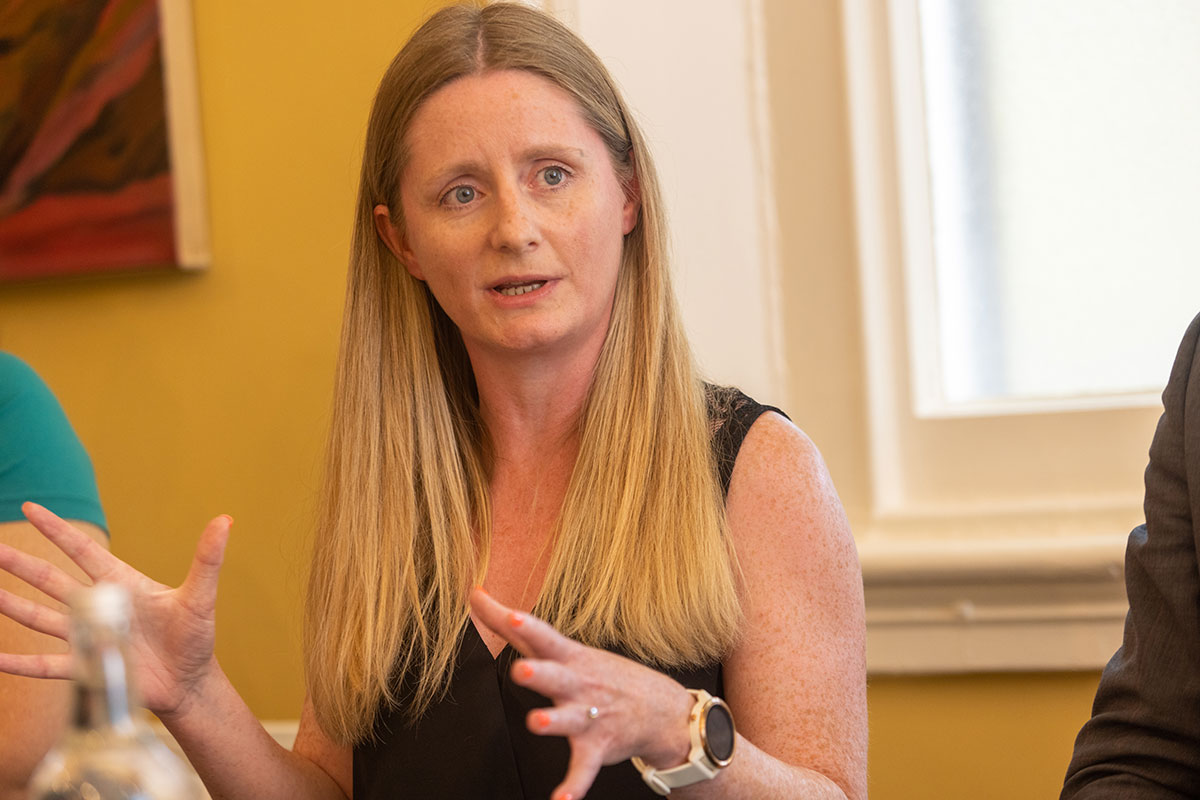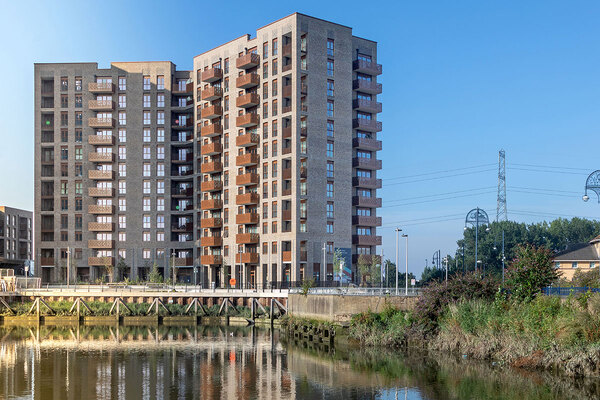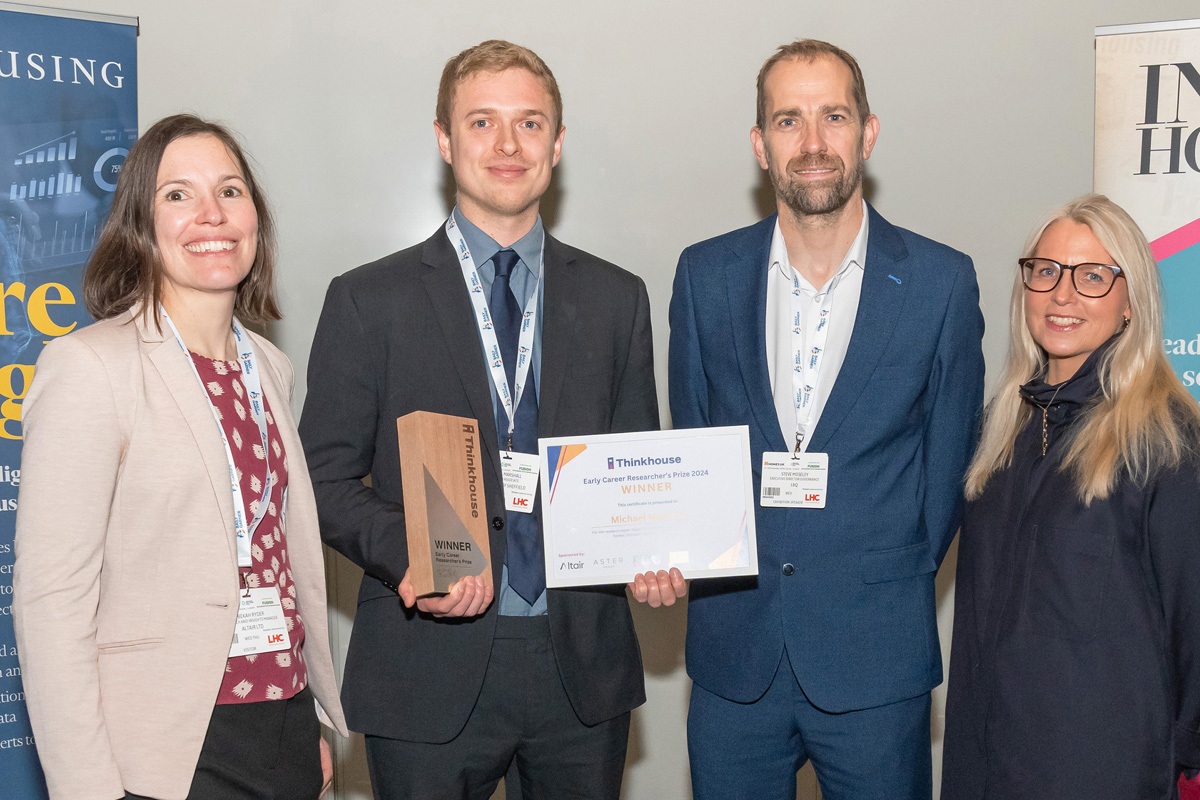What does a good repairs and maintenance practice look like?
What is the Social Housing Regulation Bill likely to mean for resident engagement when it comes to repairs, and how is the sector changing as a result? A roundtable finds out. Photography by Jonathan Goldberg
In association with:

In June, the government published its long-awaited Social Housing Regulation Bill, with the aim of raising the standard of landlord services and halving the number of non-decent homes by 2030. The bill puts into law a number of sweeping reforms – including ‘Ofsted-style’ inspections to measure the quality of social housing, repairs and complaint-handling – and gives the regulator powers to issue unlimited fines to failing landlords.
The government welcomed the bill as a major reset of power between tenants and landlords, and noted that Michael Gove, housing secretary at the time, would “continue to name and shame worst offenders to make sure residents are living in good-quality homes”.
In association with communications software specialist Localz, Inside Housing hosted a roundtable event, chaired by editor Martin Hilditch, to discuss the impact of the bill and how the sector is planning to improve repairs and maintenance services.
Reactions to the bill
Juliana Crowe, chair of the customer experience challenge and assurance panel at Stonewater, is “excited about the announcement” and hopes the bill will be “the chance for us to really make a difference” after decades of “the same issues coming up time and time again”.
However, Ms Crowe reveals that Stonewater began improving its customer experience years ago because “it was the right thing to do… it’s got nothing to do with legislation”.
This includes constantly monitoring its properties to understand and identify repairs and maintenance trends, and giving its surveyors the training to properly understand the challenges faced by residents as, too often, “housing officers see people and surveyors see buildings… I think that’s one of the most effective things we have done.”
Andrew Brown, regional director at Onward Homes, also thinks the bill is an opportunity for change and a chance to make sure “that the government sees us as people who they want to do business with… One of the things we have to do as a sector is address the way we manage our properties and deliver our repair services”.
One of the ways Onward is doing this is by setting up a team to tackle residents’ damp and mould issues. “As soon as a customer rings in, we put them at ease and tell them that we’re on their side,” says Mr Brown. “We diagnose as much as we can at the call centre, and then we either send them down a property route, or send someone to talk to them about how they’re using the property and losing lifestyle… [But] from the moment they contact us, we don’t let go until they are satisfied.”
Onward’s engagement team also talks to affected residents to discover which parts of the service can be delivered more efficiently.
Not everyone on the panel is positive about the new bill. Tim Pinder, director of operations at Wirral Methodist Housing Association, thinks that talk of it being a major reset is hyperbole. He is also concerned about the idea of naming and shaming landlords in case a two-tier approach to regulation emerges.
Instead, Mr Pinder says he prefers “a quieter, evidence-backed approach” and does not think it should be “dependent on politicians telling us that this is an important area. I believe most of us genuinely don’t need that.” However, he admits that making change can be difficult, and says that a relentless focus on joined-up thinking is vital to improve the customer experience.
Implementing the right technology
As an example of this, Elizabeth Froude, chief executive of Platform Housing Group, highlights her organisation’s culture change programme, ‘Make It Right’. “If you see something that’s not right, don’t just think, ‘that’s not my job’,” she says. “Log into the system and let’s make it right. We’ve taken customer experience away from being an extension of the contact centre and brought it into the heart of the business.”
Additionally, Platform’s customer experience team, business partners and customer groups regularly review case study examples to better understand where service and standards improvements can be made. Platform has also built its own customer survey tool, which sends requests to customers via different channels, with voice analytics making feedback easier. As a result, Ms Froude says that customer satisfaction has improved by 20%.
Jake Giacobelli, head of customer service at Tower Hamlets Community Housing, is also interested in how technology can make a positive impact in this area. “I’m very much a believer that we don’t always have to find a solution that’s a top-tier, 100% solution,” he says. “If the customer gets what they need from the front end (and) if our back end is a little bit more complex… so be it. But at least we can optimise the customer experience.”
Teams must constantly ask themselves how they can keep customer engagement at a high level, and the right application of tech can be a good way to facilitate this. Yet there are caveats, Mr Giacobelli stresses.
“How are we using data to ask people about the services and things they care about most, and not the things we want information about all the time?” he asks. “How do we keep it relevant [to them] so that we can keep getting that information and making changes to services?”
“Residents are driving this and telling us what we need to look at… It’s so important to demonstrate that we have listened”
Sheron Carter, chief executive at Hexagon Housing Association, outlines how her organisation is improving customer satisfaction regarding repairs and maintenance. This has involved moving to a new model of resident engagement with a resident advisory group and a performance review group that refers problems and issues to Hexagon’s repairs crew.
“What I find interesting with this model is there is a 360-degree review approach built into it [involving] all of the different players,” she says. “So a representative of the repairs crew sits on the contractor panel, which meets with new contractors. The contractor will provide feedback to Hexagon in terms of how that interface is working and if there’s anything blocking it, while the residents – through the case studies that are given to them – will provide feedback to the contractor.”
Having open and transparent dialogue with all parties is crucial to better teamwork, Ms Carter believes.
Mr Hilditch agrees: “To me, a crucial theme of today’s discussion is offering honesty and clarity along the repairs journey. How can this be achieved?”
Tim Andrew, chief executive of Localz, notes that “humanising” language is an effective way to change culture and improve stakeholder co-operation. “Language is so important,” he says. “One of the great culture changes we’ve seen is where companies change ‘assets’ to ‘homes’. Another easy example is changing ‘tenants’ to ’customers’.”
Personalising language in this way reminds staff that there are real people affected by repairs and maintenance services. But it is not just what you say – it is how you say it. That is why clarity of communication is critical, says Jamie Ratcliff, executive director of people and partnerships at Network Homes.
“One of the great culture changes we’ve seen is where companies change ‘assets’ to ‘homes’”
“I think explaining is incredibly important,” he says. “We’ve put a lot of focus on changing the tone of voice of our organisation, and what we’ve looked at is being open, transparent and human. When you’ve done something wrong, an apology can go a long way. But I think there’s also a danger of apologising too much… and it just becomes empty and meaningless.
“Both colleagues and residents have said what they really value is us putting a more robust challenge back to people complaining on social media [to explain], ‘this is the position we are in – and we’ve done X, Y and Z [to address the problem]’. Residents have said they don’t want someone who tweets us to be elevated to the top of the queue and suddenly get a gold standard service. They want it to be fair and equitable for everybody.”
Importance of record-keeping
When Jennifer Ryans, head of dispute resolution at the Housing Ombudsman, talks to different teams about the secret of effective repairs services, the message is always the same: “Record-keeping, record-keeping – that’s the big, big thing,” she says. “One of the issues is around early diagnosis when the surveyor inspects the property, but doesn’t specify what [work] is actually needed. We see records that say ‘repairs identified’ or ‘repairs in the living room’. It’s very broad.”
Ms Ryans believes that a more detailed approach is necessary. And when it comes to completing repairs, she stresses the need to record the nature of the completed work and provide confirmation that the resident is satisfied with it. “If you get it right at that point, then the follow-on work should be a lot easier,” she says.
Is co-creating with residents being used to advance your organisation’s culture, Mr Hilditch asks, and if so, how is it being defined?
For Karin Stockerl, director of asset strategy and services at Optivo, co-creating services with residents is a big success story. “We have three big design reviews going on at the moment,” she says. “One of these is the repairs journey. Residents are driving this and telling us what we need to look at… It’s so important to demonstrate that we have listened.”
Training is offered to residents so they can dig into data, ask more informed questions and properly challenge the Optivo team. But it is not just about involving residents in service design. Ms Stockerl believes that co-creating services with staff is equally valuable.
Yet when the comprehensive design reviews were introduced, she wondered whether her busy team would be fully on board. She needn’t have worried. “It was fantastic because [they saw the design reviews] as something that would help them do their job better and easier, and they would get less complaints,” she says. “There’s so much that residents and [housing] teams at all levels can offer [when working together to raise standards].”
Participants
Tim Andrew
Chief executive, Localz
Andrew Brown
Regional director, Onward Homes
Sheron Carter
Chief executive, Hexagon Housing Association
Juliana Crowe
Chair of customer experience challenge and assurance panel, Stonewater
Elizabeth Froude
Chief executive, Platform Housing Group
Jake Giacobelli
Head of customer service, Tower Hamlets Community Housing
Martin Hilditch (chair)
Editor, Inside Housing
Tim Pinder
Director of operations, Wirral Methodist Housing Association
Jamie Ratcliff
Executive director of people and partnerships, Network Homes
Jennifer Ryans
Head of dispute resolution, Housing Ombudsman
Karin Stockerl
Director of asset strategy and services, Optivo
Sign up for our asset management newsletter
Already have an account? Click here to manage your newsletters

















